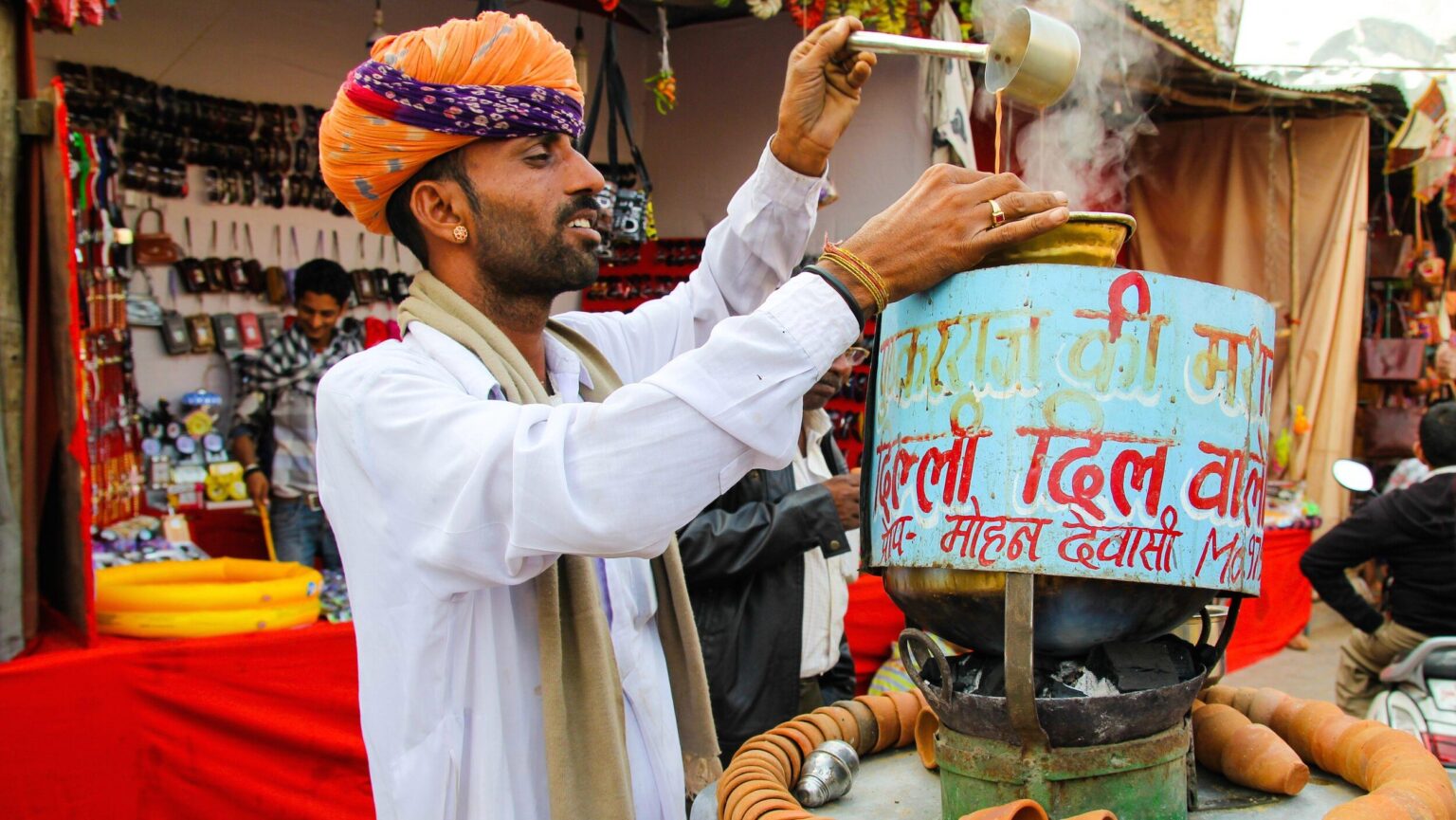Two years ago, I’d start my day with a trusted cup of English breakfast tea, meticulously brewed with just the right amount of milk. Today, after working in India, that morning ritual remains the same, except now I drink it infused with spices: the Masala Chai.
As a Project and Change Consultant, I was fortunate to work in India as part of a global tractor manufacturing programme. My taste for masala chai certainly isn’t the only experience I have taken away from my time there – and I’d like to share some of the key lessons I’ve learned.
#1 – GO HAVE CHAI…
…or coffee: “A lot can happen over coffee,” declares the slogan of India’s answer to Starbucks, Café Coffee Day. Café conversations start at breakfast and continue long after you finish up at the office. Getting to know your colleagues outside of work meetings will help create rapport that will be invaluable when you need to ask for something difficult.
#2 – THE THING ABOUT “INDIAN STANDARD TIME”
IST is not just simply 5.5 hours behind GMT, but occasionally interpreted in India as “adjustable timing.” Schedules frequently change and meetings can be impromptu, so be prepared to be flexible if timings aren’t always followed as precisely as you’re used to.
#3 – ABOUT THE INDIAN HEAD NOD
When a nod for “yes” is the same for “no,” you need to anticipate communication challenges beyond just language and accents. Culturally, our Indian colleagues are highly hospitable towards guests – and can sometimes hesitate to challenge or say no to a foreign guest, even if that question is, “Do you understand?” It pays to double-check understanding and document expectations to avoid over-commitment and under-delivery. Working with global multi-cultural teams, it is vital to facilitate effective face-to-face workshops followed up by regular conference calls to make sure everyone is genuinely on the same page.
#4 – POWER LIES AT THE TOP
Most of the largest corporations in India are family-run, with a typically institutional upward command of power. This can be very different to flat western organisations, and you need to be diligent in seeking out who is responsible for what. Don’t expect role descriptions to necessarily match up with those in the United States or Europe. Once identified, it is important to build trust and respect with decision-makers if you are to be effective in advancing your cause. On the upside, it can be less confusing and more controlled working with a single line of reporting compared with the cross-functional leadership structures of many western organizations.
#5 – IT’S NOT JUST FOOD THAT’S SPICY
Meetings can also tend to get quite fiery. You may experience colleagues becoming very passionate in putting across their points of view, and it is important to be able to enter into dialogue armed with robust facts to support the agreed agenda. As you will discover at the evening meal your hosts put on for you, it was nothing personal.
#6 – GET USED TO AIRPORTS
India is 13 times bigger than the UK. You will do business in multiple cities and frequently do day trips flying between cities. For example, Chennai is seen as the “Detroit” of India and is located a three-hour flight away from the national capital, New Delhi, where most multinationals are headquartered.
#7 – CELEBRATE DIWALI, EID, AND CHRISTMAS, BUT BE PREPARED TO WORK HARD
Holidays and shutdowns are frequent and vary from state to state, while the standard working week can be full six days with early starts and late finishes. Indian culture combines a hard work ethic with eclectic celebrations throughout the year for rest and recuperation. Unforgettable – if you’re fortunate to be around then!
#8 – TAKE YOUR RUNNING SHOES
Indian hospitality is exceptional and you will be fed very well, so make sure you use running shoes regularly to avoid being charged for excess weight on your return flight! Take necessary precautions for infection control and drink only sealed bottled water. The usual advice stands: If in doubt, leave it out.
“Masala chai” represents the fusion of two cultures to create a better end state: traditional black tea combined with the Indian love of spices – taking something which already works is well and developing it into something even more valuable and truly international. It’s what TATA has done with Jaguar Land Rover and Mittal Steel with Arcelor (to form ArcelorMittal), with many more to follow. The “Masala” they have added includes new ways of operating, different leadership approaches, global teams, and – not to forget – many never-seen-before challenges.
Originally Published on Pcubed Insight, January 2014.







